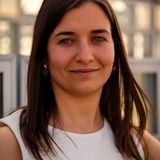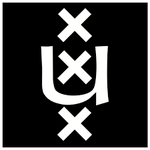Stories endure. A story — with characters, a narrative arch, a deeper meaning — does much more than just inform, it also makes you feel part of the story. The primary goal of the Narrative Journalism Foundation is to stimulate the use of narrative journalism, also known as narrative non-fiction, in the Dutch media. This includes journalistic productions for daily, weekly and monthly print media, as well as books, radio, internet and television. During this series of Livecasts we’ll talk with the creators of impactful journalistic productions from all over the world. We’ll discuss how they have used narrative techniques successfully, without losing their journalistic integrity.
Covering conflict in the media can be very challenging. Compassion fatigue towards the media and their reporting on lasting conflicts unfortunately is a reality. People are often tired of the news coming from conflict areas and they have a hard time relating to the numerous victims.
Last year the documentary FOR SAMA made a huge impact and attracted a lot of attention and a large audience that got emotionally very affected by seeing the film.
FOR SAMA is an intimate and epic journey into the female experience of war. A love letter from a young mother to her daughter, the film tells the story of Waad al-Kateab’s life through five years of the uprising in Aleppo, Syria as she falls in love, gets married and gives birth to Sama, all while cataclysmic conflict rises around her. Her camera captures incredible stories of loss, laughter and survival as Waad wrestles with an impossible choice – whether or not to flee the city to protect her daughter’s life, when leaving means abandoning the struggle for freedom for which she has already sacrificed so much. The film is the first feature documentary by Emmy award-winning filmmakers, Waad al-Kateab and Edward Watts.
FOR SAMA was awarded the Prix L’Œil d’Or for Best Documentary at the 2019 Cannes Film Festival. It also won the Grand Jury Award for Best Documentary at the SXSW Film Festival, and the Special Jury Prize for International Feature Documentary at the Hot Docs Festival.
What made the film so successful? And.. did the use of narrative techniques contribute to that success?
Fréderike Geerdink is a freelance journalist in the Netherlands and Kurdistan. She writes for a wide range of Dutch and English language media, mostly about power and those who want to break it down. After thirty years of experience in the field, she recently obtained a Master’s in International Journalism.
Afraa Hashem is one of the main characters in the award-winning documentary, “For Sama”, which tells the story of Waad al-Kateab’s life through five years of the uprising in Aleppo. Afraa opened a series of schools in Aleppo, worked as a school director and a supervisor in psychological support centers. She chose to remain in the city of Aleppo with her family during the war, to help those around her. Afraa believes in the principles of her revolution; in freedom, dignity and social justice. This is what motivated her to continue the peaceful movement. Afraa now dedicates her time to raising awareness about the situation in Syria and participates in advocacy campaigns that contribute to alleviating the pain of the innocent civilians affected by the war. One of these campaigns is Action For Sama, which was set up to turn the worldwide reaction to For Sama into positive action for Syrians.
















